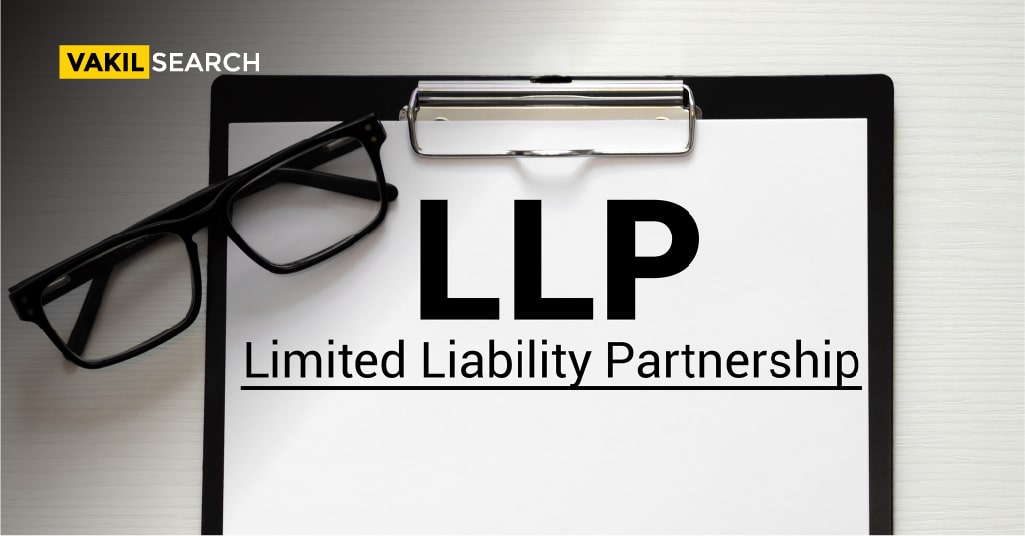Conversion of a Pvt Ltd company to an LLP is possible by maintaining the underlying guidelines put forward by the Companies Act, 2013. Read this article to know about exceptional cases where conversion is denied by the Registrar of Companies.
This blog is all about how you can know to get your company converted into llp. To know this we have to first know the eligibility criteria concerning the LLP Act. This law defines the policies of conversion of a company into LLP. Also one assumes the prerequisites that must be acknowledged before a conversion. In connection with this regard, we are about to gather knowledge on company that cannot be converted as LLPs.
As a responsible business owner, you must also be aware of registration implications and some frequently faced troubles that arrive during the course of the conversion of a Pvt Ltd organization into an LLP. By the end of this blog, you will have the answer to all these questions.
Effects of Company Conversion
When a privately held firm undergoes conversion the following elements are reconsidered for transfer of powers:
- Net assets
- Property
- Rights
- Privileges
- Interests
- Obligations
- Liabilities
- And lastly the undertaking
The details regarding these provisions are again demonstrated in Schedule 3 of 2008’s LLP Act.
LLP Conversion – Regulatory Legislature
- Section 56 of Limited Liability Partnership Law, 2008 – The owners need to abide by the provisions stated in the Third Schedule and Chapter X of Indian LLP law (2008) to solemnize a probable conversion of a privately owned company into an LLP.
- Rule 39 was introduced in 2009: The applicant or business owner must issue a Form 18 to initiate the process of request. After this, the Registrar hands over a registration certificate once the conversion issues have been resolved. The newly generated LLP must inform the appropriate Registrar of Companies via Form 14 about the completed conversion.
To understand why private business owners desire to bring in such a conversion you have to perceive the associated benefits that are extended to LLPs. To understand this we must refer to the LLP Act – Third Schedule enforced from 2008.
The advantages enjoyed by LLPs are as follows:
There are advantages when you want your company to get converted into llp.
- Reduced Legal Compliance when compared to private enterprises.
- Zero curtailments on Related category transactions.
- LLPs are not subjected to compulsory auditing.
- Restrictions are longer placed against profit distribution.
- DDT or Dividend Distribution Tax are not valid for all LLPs.
- The policies designed to promote MAT or Minimum Alternate Tax shall not be implemented on LLPs.
- Loans can be availed from third-party sources without agency hindrance.
Suitable Company Abilities that assist in LLP Conversion
Companies are allowed to apply for LLP conversion and get converted into llp abiding by the policies of Schedule 3 only if:
- The Limited Liability Partnership members to which it arrives cover all the business shareowners. There must not be any outsiders apart from them.
- There should not be any security interests associated with the company’s assets. The proprietors must examine this criterion before placing an application.
LLP Conversion Prerequisites
We shall discuss the necessary pre-conditions point-wise to get converted into llp.
- Each shareowner of the enterprise must be a legal partner of the LLP.
- There should not be any security interests associated with the company’s assets. The proprietors must examine this criterion before placing an application.
- The conversion process cannot be started once there is no valid voting conducted involving all the shareholders in favour or against conversion.
- At the same time, the company’s list of creditors needs to be confirmed in order to seek permission from them regarding the conversion.
- No Objection Certificate must be issued by the proper legislative council. This is a vital document needed for LLP conversion.
- All due returns concerning income tax, ROC and subsequent statutory authorities shall be filed.
- The company needs to present a complete statement of liabilities and assets that bears a genuine approval of a registered auditor. The notice period for the same must not exceed 1 month from the filing date of the conversion request.
Deciding Factors that govern a Company’s LLP Conversion Possibilities
Companies involved in the financial sector as well the enterprises that deal with insurance policies cannot be converted into LLPs. Next to this, the businesses that have secured security/loan against their assets cannot apply for conversion.
Many companies operate holding FDI, in their cases, performance-oriented conditions are set throughout functions, and they cannot be converted into an LLP. Other exceptions include companies possessing third-party commercial borrowings and those showcasing FDI as per the approval route.
LLP Registration Implications
- Bits and pieces of intellectual and tangible assets belonging to the business, the applicable rights, interests, obligations and liabilities regarding the company operations as well as the undertaking part need to be handed over to new parties who are part of the LLP. This has to be done without involving an additional deed or Act.
- The Company is now longer a part of the Companies Registrar. The owners should seek this particular dissolution immediately after the action has been executed.
- If any authority has already registered the property rights, it is the fundamental responsibility of the LLP to convey this news to the appropriate authorities as fast as possible.
- Each company appointment needs to be scheduled keeping in mind the registration date regardless of the organization’s capacity.
- Each employment contract must continue to exist after the registration has been completed and the employer shall look into this matter.
- The LLP needs to deal with all existing legal proceedings against the company that are not solved yet and thus the tribunal and Court affairs continue to be the responsibility of the newly formed council.
- The Court’s order either in favour of or against the previous enterprise will continue to hold its effect against the newly formed LLP too.
- All schemes, deeds, instruments, applications, bonds and arrangements that existed before the registration date must be continued with due diligence as these are all enforceable against or by the Limited Liability Partnership.
- The company might be a partner entering into multiple agreements before the conversion. After the registration has been the liabilities and associated rights face no alterations and their effect is applicable right from day 1 of the newly proclaimed LLP.
Click Here: Conversion of Partnership Firm Into LLP
Conclusion
If you want your company converted into llp, it requires legal expertise thus an attorneyhas to be hired to satisfy this role. The Registrar can however turn down the request if the Council feels that conversion specifications presented to them are not proper as per the 2013’s Companies Act. The applicant can always reach out to the Tribunal if he wishes to counter the Registrar’s decision regarding refusal for LLP conversion.
Vakilsearch brings you these types of exclusive content featuring legislature pertaining to Indian commercial space. If you are a business owner or simply a reader who wants to gain knowledge on this subject, do follow our blog posts.
Read More:










